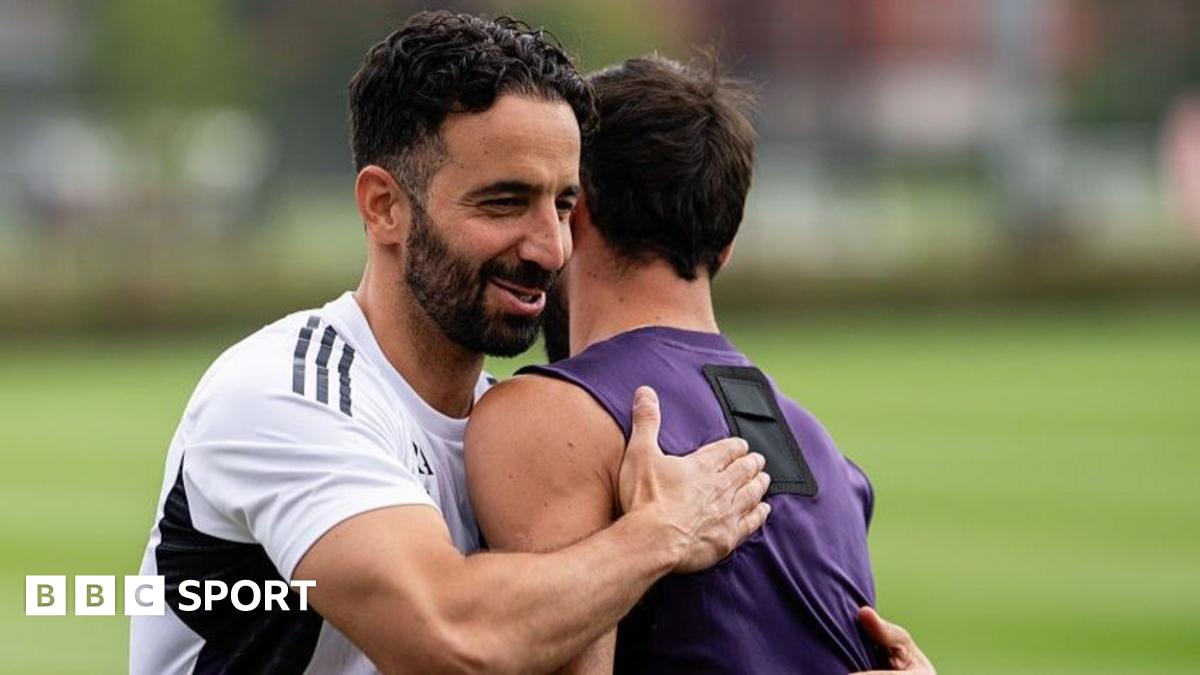
Manchester United's summer transfer window presents a fascinating case study in balancing immediate squad needs with long-term financial strategy. Manager Ruben Amorim's recent comments, signaling a firm stance on player valuations, highlight a calculated gamble. The club seemingly prioritizes securing appropriate returns on investment over a quickfire clear-out of perceived surplus players.
Amorim's strategy appears to involve integrating players back into the squad if their valuation isn't met, reinforcing the message that Manchester United won't be pressured into cut-price deals. This approach stands in stark contrast to previous regimes, where player sales were often dictated by the urgency to generate funds for new signings, potentially undervaluing assets. The arrival of Jason Wilcox, Omar Berrada, and Diego Leon suggests a more structured and financially disciplined approach.
The arrivals of Bryan Mbeumo and Matheus Cunha, reportedly costing around £130 million, point to a clear focus on strengthening the forward line. This addresses a glaring weakness from last season, where United finished a dismal 15th, a statistic that underscores the need for attacking reinforcements. Cunha's expressed eagerness to embrace the pressure at a club like United is telling. It suggests a player who believes he can immediately contribute to a turnaround in fortunes. Data from similar signings at other top clubs reveals that integrating new forwards effectively within the first few months is crucial for a successful season trajectory.
However, the pursuit of a striker and a holding midfielder underscores the ongoing need for squad depth and tactical flexibility. The 4-3-3 formation favored by many modern managers requires a strong midfield presence and clinical finishing up front. If United fails to secure these additions, Amorim's tactical options could be limited, potentially impacting their ability to compete against top rivals like Arsenal, Manchester City, and Chelsea early in the season. Historically, teams that start the season strongly often maintain that momentum throughout the campaign.
The potential return of players like Sancho and Garnacho, if not sold at the desired price, could offer Amorim alternative tactical options. Sancho, though linked with Juventus, possesses the dribbling and creative abilities to unlock defenses. Garnacho's pace and directness could provide a different dimension to United's attack. However, integrating these players back into the squad requires careful man-management to ensure a cohesive team environment.
Ultimately, Manchester United's season trajectory hinges on their ability to balance financial prudence with on-pitch performance. Amorim's hard-line stance on transfers represents a shift towards a more sustainable model. However, the success of this approach depends on the new signings hitting the ground running and the potential reintegration of existing players into a unified squad. The opening fixtures against Arsenal, Manchester City, and Chelsea will provide an early indication of whether this calculated gamble will pay off or if further adjustments are needed to achieve the club's ambitions. A failure to effectively use existing players would represent a continuation of past inefficiencies and signal a deeper issue within the squad dynamic. The trend of teams struggling to integrate both expensive signings and utilize existing squad depth suggest a potentially turbulent season ahead if these issues aren't addressed quickly.